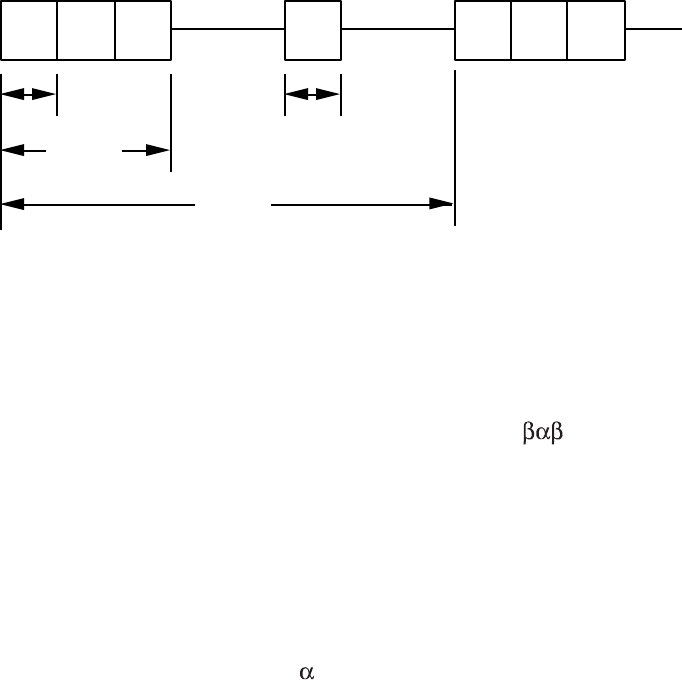
1-3
not sending. This time is taken up by propagation time from the
ISS to the IRS, 70 ms for the IRS to send its service information
signal, and the return trip back to the ISS.
The IRS listens between blocks and sends a control signal (CS1 or
CS2) to request either the next block, or retransmission of the last
block in the case of error. Request for retransmission may be re-
peated up to 32 times, until the completed block has been received
error-free. After 32 times, the ISS automatically initiates a new
call.
3 Characters
CONTROL SIGNAL
1 Character
70 ms70 ms
210 ms
450 ms
INFORMATION
Figure 1-2 ARQ mode traffic exchange timing
Once an entire message is received (error-free), a station may switch
its function from the IRS to the ISS by means of a control signal
(CS3). This change is done by either the ISS by the sequence of "
Figure shift + ? ", or by the IRS operator by activating the "OVER"
control. Upon receipt of CS3, ISS answers with a block. This
switches the ISS into IRS. However, the original Master and Slave
stations' status remains unchanged, since the Master Station al-
ways controls the radio circuit.
Termination of Communication
Only the ISS may terminate the established circuit. It does this by
sending three "idle signals ." The IRS and ISS exchange control
signals, each reverting to standby after acknowledging each other’ s
control signals. Then, the connection is cleared.


















